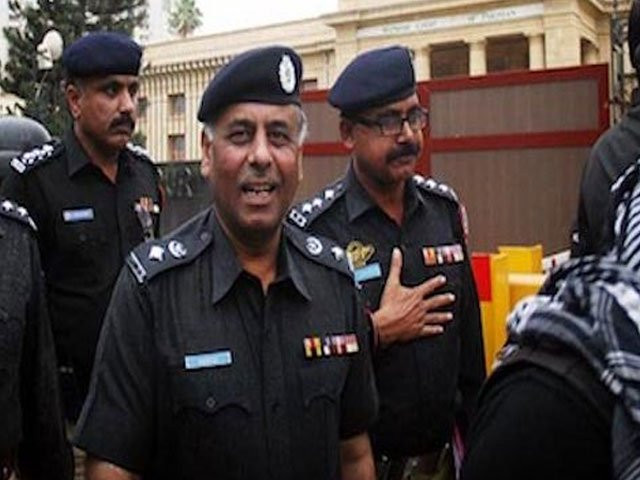Armed operations to kill suspects is 'policy' of Sindh police, alleges Anwar
The former SSP Malir says he has no plan to appear before the court

Rao Anwar: PHOTO: FILE
"There was an on-going official policy ... for carrying out encounters to take out criminals and I have broken no law," he told Reuters.
Arrest Rao Anwar within three days: Supreme Court tells IG Sindh
However, the Inspector General of Police in Sindh Allah Dino Khawaja denied there was such a policy.
"I don't need to respond to irresponsible allegations," Inspector General of Sindh police Allah Dino Khawaja said in a brief text message in reply to Reuters' questions.
"He has to appear before the investigation to defend and prove his claims."
Sindh police said in a statement on January 20 it had launched an inquiry "to ascertain the facts regarding the police encounter in which Naqeebullah Mehsud was killed".
Anwar said he had done nothing wrong and said the investigation into his officers' actions could allow the Taliban to regain a foothold in Pashtun majority parts of the city.
"I had no knowledge of Naqeebullah Mehsud. My staff told me that he is a militant with a criminal history," he said.
Police data from 2011 shows that in the seven years Anwar has been in charge of Karachi's Malir district, which has a large Pashtun population, at least 450 people have been killed in 200 clashes with police that involved weapons.
The data does not give details of the circumstances of the shootings. A senior police official, who asked not to be identified, said that the majority of those killed were ethnic Pashtuns.
Some campaigners among the sprawling city's Pashtun community say the story is not unusual. But it is the first to receive nationwide attention - in part because Naqeebullah, does not fit the image of the militant from Pakistan's northern heartlands.
"He had a passion for wearing good clothes ...even in the picture of his body circulating on social media, he is seen wearing good clothes," his cousin Noor Rehman said while holding back tears.
Another senior police officer said no evidence linking Naqeebullah to militancy had been found. "His particulars were checked in all the criminal databases of police and nothing came up," the official said on condition of anonymity.
The Chief Justice of Pakistan had summoned Anwar to appear for questioning at its first hearing on Saturday. Anwar said he does not plan to appear before the court. He said his children are studying in Dubai and he frequently visits.
Figures posted by the Human Rights Commission of Pakistan (HRCP) on its website show 1,226 people were killed in 784 police encounters nationwide in the past two years. In the days after Naqeebullah was killed, thousands of activists and Pashtun students staged protests in Karachi, Lahore, Peshawar, Islamabad and Quetta.
In Sohrab Goth Karachi, the majority Pashtun suburb of Karachi where Naqeebullah’s family live, three families said they had lost relatives in such incidents.
Five-member committee to investigate Naqeeb’s killing
The Home Minister Sindh Sohail Anwer Sial said the authorities were taking action over the Naqeebullah’s case, but that one or two incidents did not mean the entire police force was corrupt.
"The same police force...eradicated violence from the city during Karachi operation', which began in 2013 against militants," he said.
"One person's actions cannot be allowed to malign the system."



















COMMENTS
Comments are moderated and generally will be posted if they are on-topic and not abusive.
For more information, please see our Comments FAQ